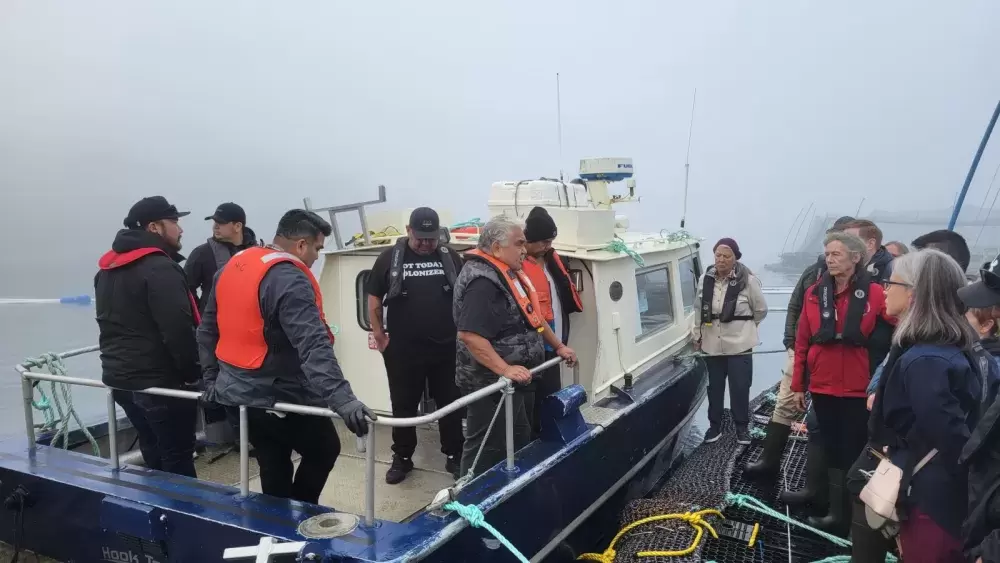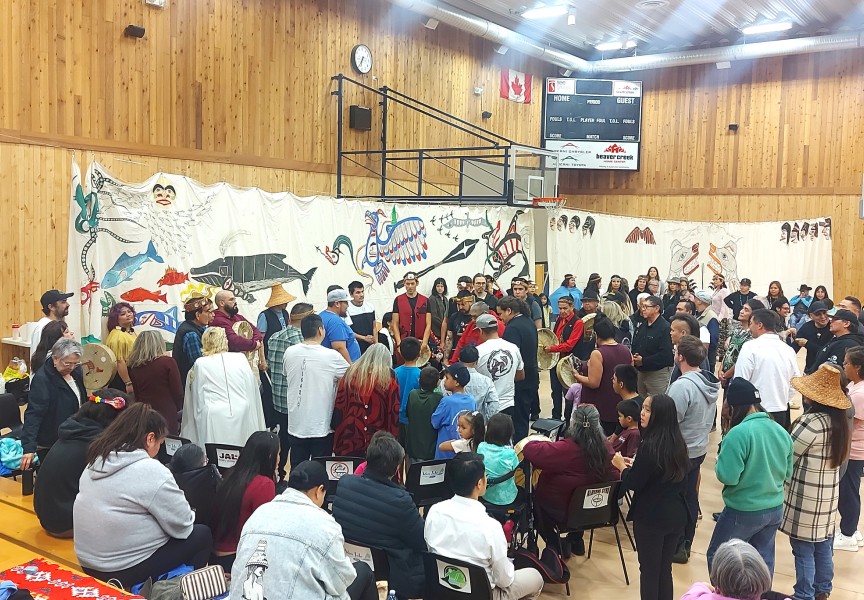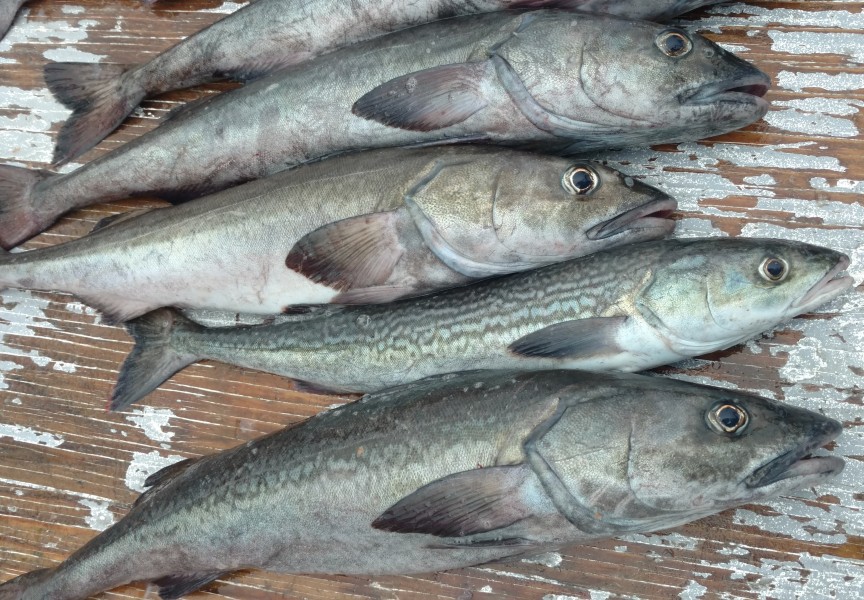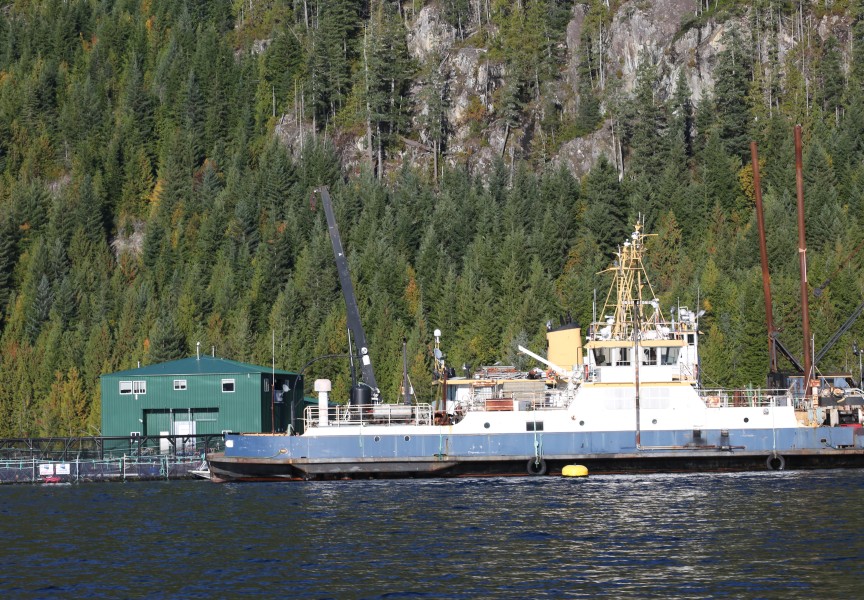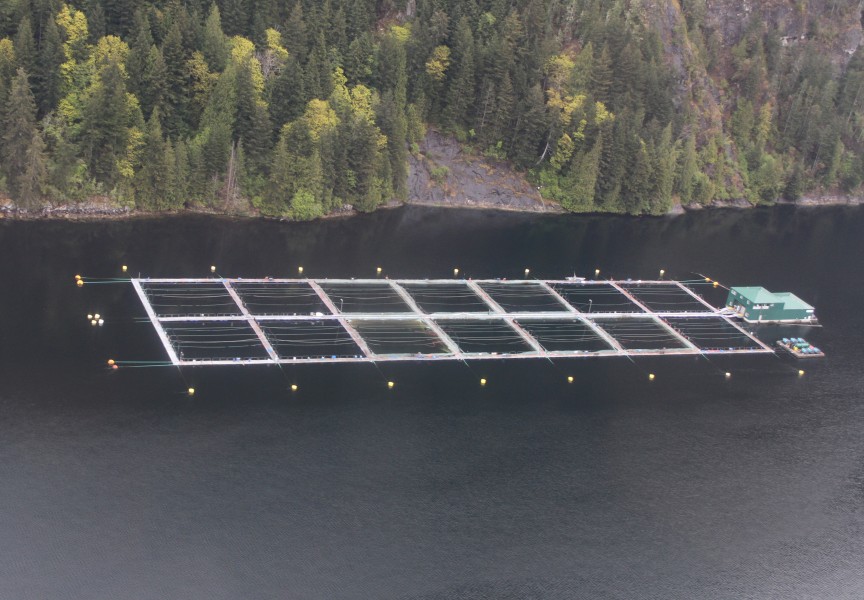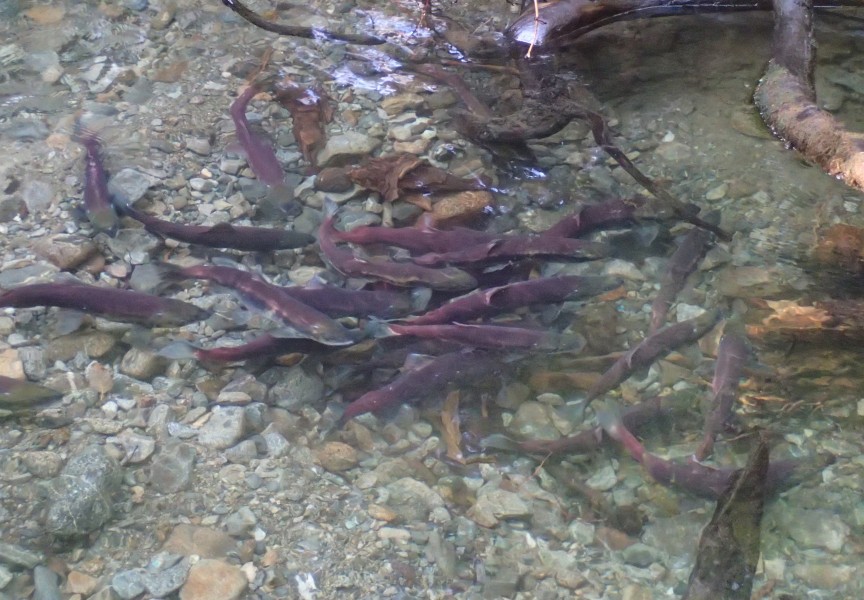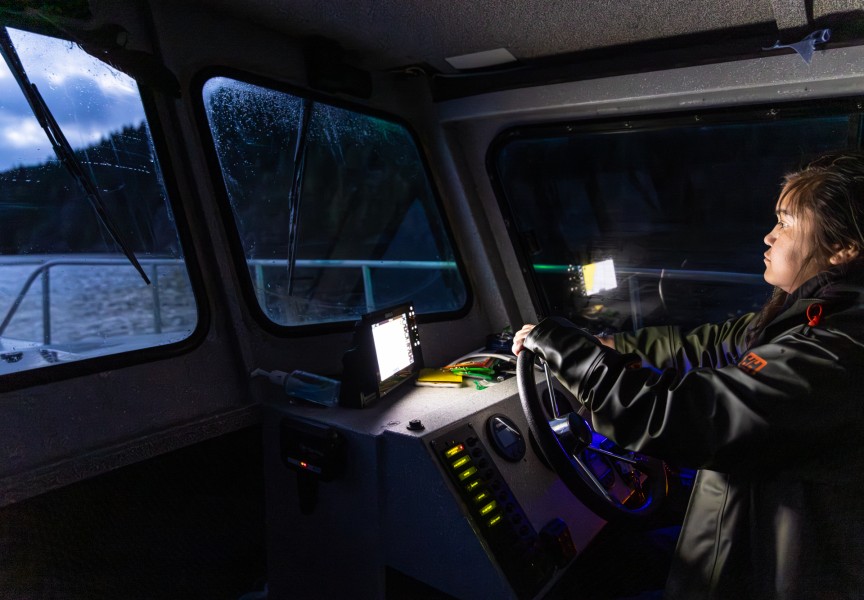As uncertainty hangs over aquaculture on the B.C. coast, Canada’s fisheries minster visited Vancouver Island fish farms last week, armed with a mandate to transition open net pens out of the ocean by 2025.
But a coalition of First Nations advocating to keep salmon farms in their territories informed Joyce Murray, the visiting minister of Fisheries and Oceans Canada, that they will continue to operate according to their Aboriginal rights, regardless of what the government decides.
Moving net pens out of the Pacific was part of the election platform that enabled Justin Trudeau’s Liberals to retain a minority government in last year’s federal election. Since then, MP Joyce Murray was appointed minister of Fisheries and Oceans Canada and the Coast Guard, with direction to make “a responsible plan to transition from open net-pen salmon farming in coastal British Columbia by 2025,” according to the mandate letter delivered by the Prime Minister.
In taking the role Murray has stepped into one of the most contentious issues facing coastal communities, as the future of aquaculture hangs between the industry’s economic benefits and concerns over pathogens from farmed fish spreading to threatened wild stocks.
As a councillor with the Kitasoo/Xai’xais Nation, Isaiah Robinson is part of the Coalition of First Nations for Finfish Stewardship, which also includes the Ahousaht, Tlowitsis and Wei Wai Kum First Nations. The coalition emerged this year, advocating for the economic benefits of aquaculture to coastal communities that can offer few job prospects. The group pledges to closely watch fish farms in its territories “to ensure that those operations are done responsibly and transparently with minimal risk to the wild salmon we rely on as coastal peoples,” according to a press release issued before Murray’s visit.
After the minister’s visit to his territory, Robinson said it appears her mind is set on following the government’s pledge to get open net pens out of the ocean.
“She very much acknowledged all of our statements but that doesn’t mean that it’s going to go any different than the way it is now,” he said. “They’re still sticking with the same timeline, and she didn’t budge with that expectation.”
It remains to be seen what the transition plan from open net pens will look like, as this ocean-based practice has long been a standard for the industry. On June 30 nearly all of the 109 salmon farms on the B.C. coast were due to expire, but a week before this deadline Murray granted two-year licence extensions to allow for further consultations with First Nations and operators.
An exception to this is the Discovery Islands, territories of the Laich-kwil-tach and Klahoose First Nations northeast of Vancouver Island. After years of opposition, in 2020 former fisheries minister Bernadette Jordan cancelled the 19 licences in this region – an announcement that was overturned in April 2022 by the Federal Court, which determined the cancellation wasn’t procedurally fair and lacked justification. Now the Discovery Islands farms can breed fish until January, at which time a final decision is expected from the current fisheries minister.
The future of the Discovery Islands’ sites was addressed during Murray’s visit, according to the Coalition of First Nations for Finfish Stewardship.
“This transition engagement process between DFO, the Province of B.C. and our Nations has a short timeline that we consider inadequate,” stated the coalition.
Due a lack of professional expertise and funds, it’s a challenge for many of the coastal First Nations to assemble a transition plan in time for what DFO requires, stressed Robinson.
“Each nation is trying to formulate what that transition will be, and the government’s got to pull it back and formulate something from that,” he said, noting that the nations might not necessarily follow what the government requires. “If she makes her decision, and it doesn’t fall in line with what we’re doing – we don’t want to do it, but we’ll just have to use our self-inherent right. That’s something that the nations reiterated.”
The DFO has pointed to the need to prevent contact between migrating wild stocks and farmed salmon. Many fear that farmed fish bred in close proximity - which in most cases are Atlantic salmon - can spread sea lice and other pathogens to their wild counterparts as schools pass net pens.
For years the Union of B.C. Indian Chiefs has pushed for the removal of net pens in favour of land-based facilities. In June the UBCIC passed a resolution calling for a moratorium on new licences in the Discovery Islands, fulfilling the DFO’s phase-out commitments.
“The vast majority of First Nations in B.C. oppose open net pen fish farming due to the detrimental effects it has on wild salmon,” said UBCIC President Grand Chief Stewart Phillip in a past statement, citing the Cohen Commission of Inquiry into the Decline of Sockeye Salmon in the Fraser River. “Water is contaminated, poisoning salmon, shellfish, and other marine life. The immediate dangers include disease and pathogens which Justice Cohen spoke of as a potentially irreversible impact to B.C. Wild Salmon.”
Robinson said that the coalition does not agree with this, citing decades of research into that the Kitasoo/Xai’xais Nation has drawn from that show no direct correlation between the location of farm sites and declining wild stocks.
“We don’t see it as a significant risk,” he said of salmon farming. “We hope that [Murray] understood that no matter what she’s going to decide, we’re going to be sticking by our rights and title. We expect the government to do the same thing.”
As three quarters of salmon harvested in British Columbia come from fish farms, advocates for the industry hope that the DFO minister will respect their interests.
“We hope this visit will encourage Minister Murray to listen to our Nations’ distinct and sovereign voices and understand the importance of finfish aquaculture to our coastal and often remote communities,” stated the coalition. “By working together, we can build on the foundation of an innovative and robust aquaculture industry already operating in our waters and encourage coastal First Nations to help lead Canada’s Blue Economy here on the West Coast.”

